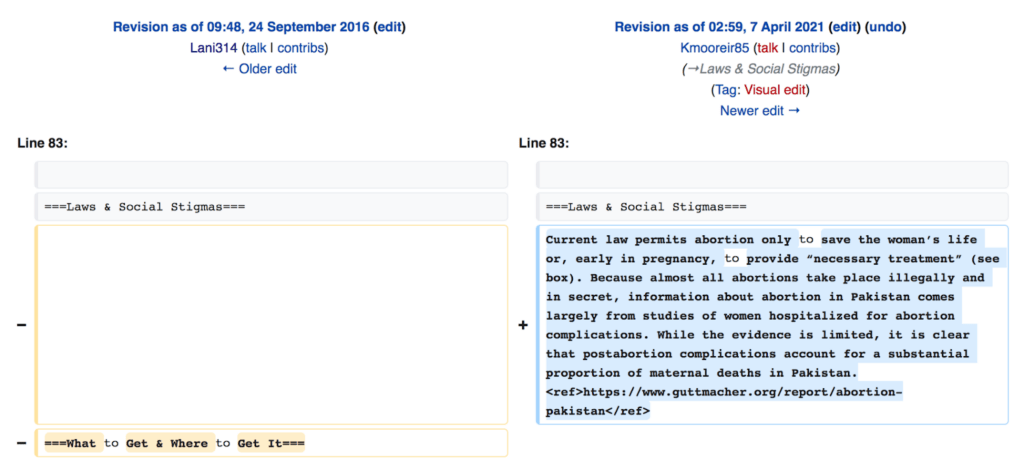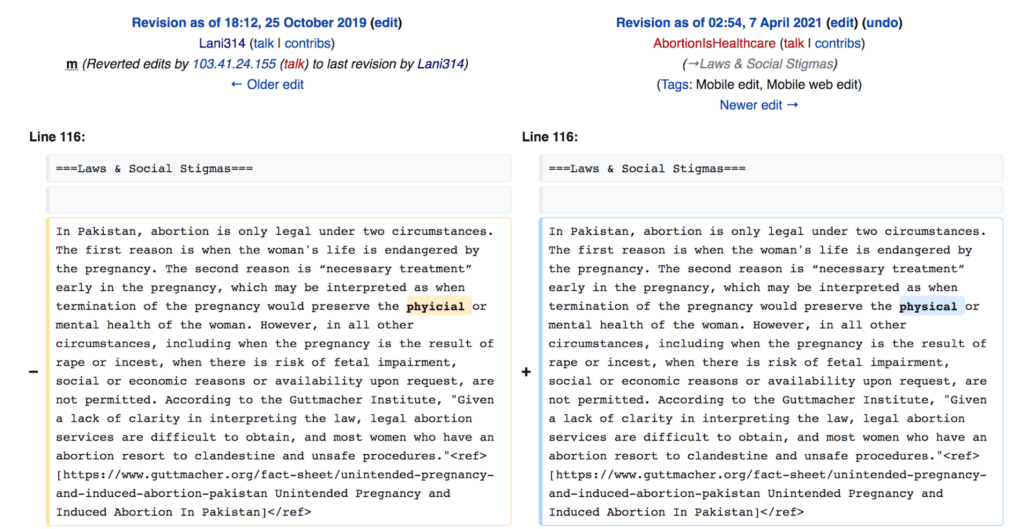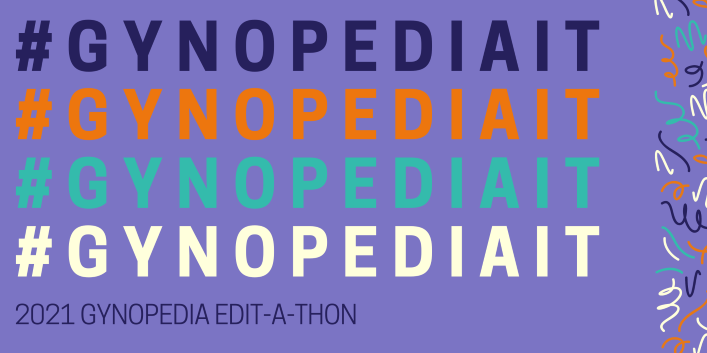In March 2021, Asia Safe Abortion Partnership, Gynopedia, and Stories to Action hosted the first #GynopediaIt campaign, including a tweet-a-thon and an edit-a-thon, open to anyone with internet access and a computer or mobile phone to contribute and share their knowledge around sexual and reproductive services in their region.
The Tweet-a-Thon
The tweet-a-thon, held on March 25, gave voice to personal and organizational activists in the global SRHR space who shared insights regarding localized sexual and reproductive health care resources, abortion access and care, birth control options and STI testing. There were a lot of mind-blowing moments throughout the event (catch up on all the details through #GynopediaIt), but here are our main take-aways:
Sexual and reproductive health care largely remains a taboo subject as reported by participantes. Interestingly, in Malaysia, sexual health and reproductive health are treated as two separate types of issues and are handled differently: where sexual health is a hush-hush discussion, but reproductive health is progressive. The latter is also relatively easily accessible by married couples, but both reproductive and sexual health are mostly inaccessible to youth.
Safe abortion care remains highly stigmatized in many countries, even in countries offering systematized legal access to it (for particular circumstances). In India, for example, safe abortion services are available at all government hospitals and registered centres, however not all women may no where to access safe abortion services. In Indonesia, stigma and fear of criminalization is strong and also here most people who need an abortion don’t know where they can access it.
Access to family planning resources also varies largely from country to country. For example, in Malaysia, only married couples have access to birth control. In Sri Lanka, information about accessing and using birth control is difficult to navigate. Lastly,in India, birth control resources are commonly available (and condoms are free!), although there is less variety of birth control methods.
These conversations on Twitter paved the way for the first #GynopediaIt edit-a-thon, which took place between March 27 and April 11, 2021. Participants trained and edited for over 14 hours on the Gynopedia free wiki and resource on sexual and reproductive healthcare around the world.
The Edit-a-thon
Gynopedia was founded in 2016, and provides free information on birth control, the morning-after pill, STI tests, menstrual products, gynecologists, obstetricians, prenatal care, abortion access, crisis support, and more, by city or country.
Gynopedia is run and updated by volunteers – and edit-a-thons like this are an opportunity to collaborate with people with shared interests, with the collective aim of making local information accessible to the public. As Gynopedia-founder, Lani Fried, puts it, “While many people edit wiki pages on their own (and enjoy it!), many people enjoy the community and collaborative nature of editing together, including me! When we organize edit-a-thons, this is a way to make that possible and it can be lots of fun.“
'With women's health issues so often overlooked, this website is a crucial resource.'
Edits can be made by either guests or registered users: If people don’t create an account, their IP address is stored in the edit history (which is publicly viewable). If people do create an account, their username is displayed in the edit history. For example, during the editathon, Desaree Soysa added to a previously empty section on the Colombo page, and edited the page as a guest, adding: “A stigma that is common across Sri Lanka is the “Kili Concept”. The word “Kili” means dirty or impure. Therefore menstruation and menstrual blood is considered impure. Women are not allowed into certain religious places while those women are on their period.” This may be common knowledge to locals, but for anyone travelling or new to Colombo, this could be invaluable information!

On the other hand, the Lahore page was edited by a registered user who goes by Kmooreir85, who referenced Guttmacher to add that: “Because of the serious social stigma associated with abortion, there are many illegal abortions being performed, especially in rural regions. In 2002, 197,000 women were hospitalized due to illness or death as a result of complications from illegal abortion.” Edits that references the sources are especially useful – they add reliability to the information, and provide further resources for readers looking to investigate further.
But not all edits need to be as thorough as that – minor edits also add to the trustworthiness of wikis such as Gynopedia. User AbortionIsHealthcare, for example, corrected a spelling mistake on the Pakistan page:

No matter how small, edits to Gynopedia make the resource evolve and be a collective tool for information sharing… made by the public, for the public. Participants in the event had the opportunity to exchange motivations for participating, and there was a general consensus that people are very interested in finding ways that they can make a difference in sharing knowledge and contributing to knowledge equity. Editing wikis, including wikis on specialized topics like Gynopedia, is a great way to do this.
Throughout the edit-a-thon, participants from New York to India to China and beyond joined the effort to update pages, learning how (easy it is) to edit and add information to wikis. One of the volunteers, Kirsten Moore, said: “The #GynopediaIt event was a wonderful opportunity to meet like-minded people globally, and learn valuable tools about contributing to wikis. With women’s health issues so often overlooked, this website is a crucial resource.” She added that “the training event with founder Lani Fried was both fun and empowering. I can’t wait to attend another!”
To stay up to date on future edit-a-thons, make sure to follow Gynopedia:
Instagram: @gynopedia_global Facebook: @gynopedia Twitter: @gynopedia
